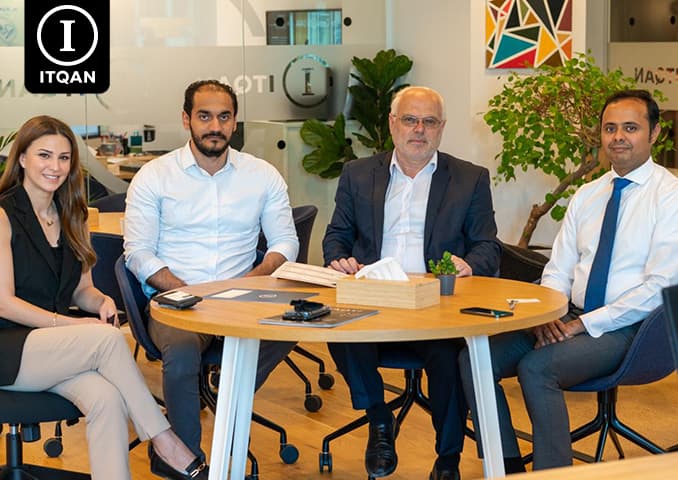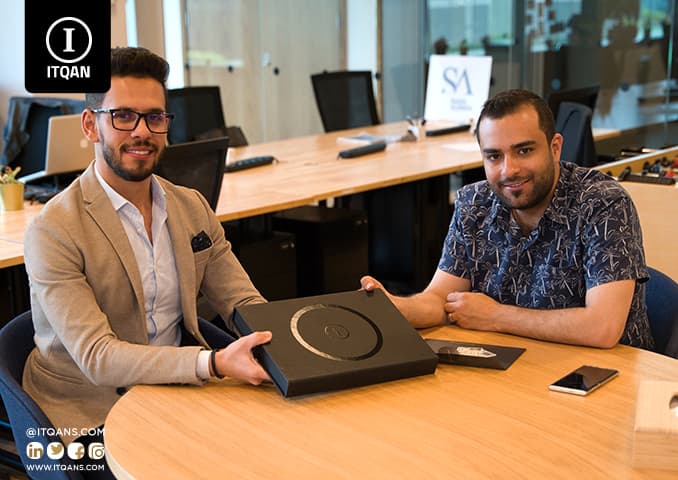The UAE is one of the most attractive destinations for foreign investment, thanks to its dynamic economic environment, advanced infrastructure, and legal framework that facilitates business formation. If you are considering becoming a foreign investor in the UAE, the opportunities available are diverse and cater to various economic sectors, such as real estate, technology, tourism, and industry. With increasing economic reforms and openness to foreign investment, the UAE has become an attractive destination for entrepreneurs and investors from all over the world.
One of the key factors that makes the UAE attractive to foreign investors is the ease of setting up businesses. The country offers a wide range of free zones that offer multiple benefits such as full ownership for foreign investors and competitive tax exemptions. There are also several specialized companies such as Itqan that provide integrated services to support investors in understanding the legal requirements and procedures, in addition to providing professional advice that facilitates the process of entering the UAE market.
The UAE also seeks to enhance the sustainability of its economy by providing facilities for foreign investors, including the possibility of obtaining long-term visas and permanent residency. With the rapid technological development and the government’s adoption of innovations, investors can benefit from government policies that support modern technology and invest in future fields such as artificial intelligence and the digital economy.
In short, investing in the UAE is a golden opportunity to achieve success in a stable and supportive investment environment. With professional partners like Itqan, new investors can get the support they need to achieve their investment goals quickly and efficiently.

جدول المحتوى
ToggleBasic steps to establish a company as a foreign investor in the UAE
Establishing a company in the UAE as a foreign investor is a strategic move to take advantage of the thriving economy, advanced infrastructure, and flexible regulatory environment. The UAE is a leading destination for international businesses thanks to the extensive facilities it offers to foreign investors, ranging from full ownership of companies in free zones, to tax exemptions and legal privileges. If you are considering entering the UAE market, it is essential to understand the basic steps to successfully establish a company to ensure compliance with local laws and procedures and avoid any unexpected complications. The basic steps to establish a company as a foreign investor in the UAE:
- Determine the type of business activity: The first step to establishing your company is to determine the type of business you want to engage in. The UAE offers a wide range of business activities including trading, manufacturing, services, and consulting. Choosing the type of business will help determine the type of license you will need.
- Choosing the legal structure of the company: After determining the activity, you must choose the legal structure of the company, which can be a limited liability company (LLC), a branch of a foreign company, a free zone company, or a joint stock company. The legal structure affects the financial and regulatory requirements.
- Choosing a trade name: A unique trade name must be chosen that complies with local regulations. The name must reflect the nature of the business and must not include any prohibited or offensive words. This step may require approval from the relevant authorities before it can be registered.
- Obtaining approvals and licenses: Depending on the type of business and legal structure, you will need to obtain the necessary approvals from the relevant government authorities such as the Department of Economic Development if operating on the mainland, or the Free Zone Authority if you intend to operate within a free zone.
- Choosing a location: Choosing the right location is an important part of setting up a company. You can choose between free zones, which offer many benefits such as tax exemptions and full ownership, or the mainland, which provides greater freedom to conduct local business activities.
- Preparing the necessary documents: You will need to submit a set of documents that include a copy of your passport, business plans, articles of association, and government approvals. Requirements can vary depending on the type of business and the region in which you intend to establish the company.
- Registration and licensing: After submitting the required documents, the company must be registered with the relevant authorities and obtain a commercial license that allows you to legally practice the activity. This process can take some time, but is often quick in free zones.
- Open a bank account and arrange financial transactions: Once the company is registered, you need to open a bank account in a local bank to ensure easy management of funds and transactions.

Documents required to establish a company as a foreign investor
The UAE is an attractive destination for foreign investors due to its stable economic environment and legal and administrative facilities for establishing companies. Whether you are planning to establish a company in a free zone or on the mainland, there are a set of documents that you need to prepare to ensure compliance with legal requirements and local regulations. Preparing the documents correctly helps speed up the company formation process and reduces any unwanted delays. Knowing the required documents and submitting them accurately is an essential step to ensure the success of your investment in the UAE. Documents required to establish a company in the UAE:
- Copy of Passport: A clear and recent copy of the passport of the founder or shareholders of the company must be submitted. The passport must be valid for a period of not less than 6 months.
- Business Plan: Some authorities require a detailed business plan that includes the company’s goals, strategies, products or services offered, and target market. The business plan demonstrates the seriousness of the project and helps authorities evaluate the business.
- Memorandum and Articles of Association: A memorandum of association must be prepared, which outlines the structure of the company, its objectives, and the rights of shareholders. In some cases, you may need to prepare articles of association.
- Initial approval from relevant authorities: You need to obtain initial approval from the relevant authorities such as the Department of Economic Development (if you intend to establish in the mainland) or the administrative authorities in the free zones.
- No Objection Certificate (NOC): If the shareholders or directors are already working in the UAE under the sponsorship of another company, a No Objection Certificate (NOC) may be required from the current employer.
- Proof of company address: Proof of the company’s headquarters address, whether in a free zone or on the mainland, must be provided. This may require a lease agreement or proof of ownership.
- Personal Photos: Recent personal photos of shareholders or directors may be required in some cases.
- Financial statement or bank statement: Some entities may require the submission of a financial statement or bank statement proving the financial ability to operate the company and ensure its continuity.
- Special Licenses (if applicable): If the company plans to conduct business that requires special licenses (such as healthcare, education, or finance), these licenses must be obtained from the relevant authorities.
By submitting these documents correctly, a foreign investor can confidently move forward towards establishing his company in the UAE and benefit from the available investment opportunities.
Meet a foreign investor in the UAE
In conclusion, investing in the UAE represents a unique opportunity for foreign investors seeking to benefit from a developed and stable economic environment. The country offers a range of advantages that make it a preferred destination, including modern infrastructure, flexible legislation, and tax exemptions provided by free zones. In addition, the UAE is a global trading hub that connects markets in Asia, Europe, and Africa, enhancing the chances of success and expansion on an international level.
By working with specialized companies like Itqan, foreign investors can overcome the potential complications that they may face while setting up their business in the UAE. Itqan provides comprehensive support that includes guidance on legal requirements, choosing the right business structures, and guiding them on the best free zones that suit the nature of the investment. The company also facilitates investors’ access to the necessary information on licenses, residencies, and securing work visas, making the investment process smoother and less risky.
The UAE is one of the countries that pays special attention to promoting foreign investment, which is evident in the provision of long-term residency programs and many government incentives that allow investors to benefit from an open and thriving economy. In addition, the continuous support provided by the government to promote innovation and technology opens new horizons for investors who wish to invest in emerging sectors such as artificial intelligence and renewable energy.
Ultimately, investing in the UAE is a strategic choice that can yield amazing results. With a trusted partner like Itqan, foreign investors can make a steady move towards achieving their financial and business goals in one of the most dynamic markets in the world. Itqan’s commitment to providing full support ensures that investors have access to all the tools and services they need to succeed in their investment journey in the UAE.
Frequently asked questions about foreign investors in the UAE
What are the basic steps to establish a company as a foreign investor in the UAE?
The main steps include choosing the type of business activity, determining the legal structure of the company, choosing a trade name, obtaining the necessary approvals from government agencies, choosing a location for the company (such as free zones or the mainland), and submitting the required documents.
What are the free zones in the UAE and what are their advantages?
Free zones are special economic zones that offer facilities such as tax exemptions and 100% foreign ownership. They also provide a convenient business environment and advanced infrastructure. The most popular free zones include Jebel Ali, Dubai South, and Dubai International Financial Centre.
Can a foreign investor obtain a residence visa in the UAE?
Yes, foreign investors can obtain long-term residency visas (5 to 10 years) depending on the size of the investment. There are also golden visa programs that grant permanent residency to investors who meet certain criteria.
Does the UAE impose taxes on foreign companies?
In most free zones, companies are exempt from taxes for up to 50 years. Companies operating in the mainland may be subject to taxes such as the recently implemented 9% corporate tax.
What are the most attractive economic sectors for investment in the UAE?
The most attractive sectors for investment in the UAE include real estate, technology, tourism, trade, renewable energy, and healthcare.
Can I transfer my earnings abroad without restrictions?
Yes, the UAE provides full facilities to transfer profits and money abroad without any restrictions on currency or taxes on money transfers.

















